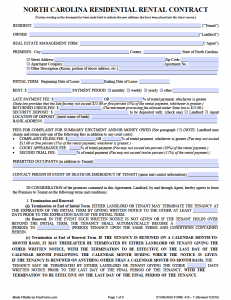
The North Carolina lease agreement represents an outlined arrangement between a lessor and lessee regarding utilizing a residential or commercial space for a defined time and specified payment schedule. The paper register assigns the particulars of the agreement to writing, including names, contact information, property address, monthly rate, lease terms, and conditions. The agreement serves to protect the involved parties, as the default of any provision could lead to the potential breach of contract.
Rental Application – An instrument given by the owner or management of a rental property to individuals seeking to lease the premises, which in turn, allows them to retrieve specific data that can be of use when evaluating the prospect.

Association of Realtors Version (Form 410-T) – The state’s Realtor group has developed its own version of the residential lease that can be taken advantage of by lessors & lessees taking part in a rental transaction.
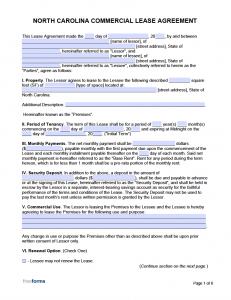
Commercial Lease Agreement – Summarizes the provisions, period length, and pricing of the lease of real estate for a business entity solely for company use.
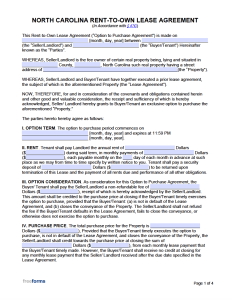
Lease to Own Agreement – Exemplifies a written testimony accounting for the terms associated with renting a property with an additional clause offering an option to buy upon the end of the leasing period.
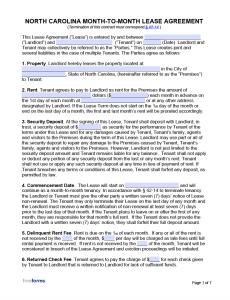
Month-to-Month Lease – Manifests a contract signifying a term lease with a preference of possible early termination with notification of seven (7) days prior.
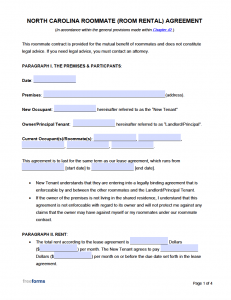
Roommate Agreement – Renders the account of an obligation for a person to utilize a segment of the space offered by a current tenant for a distinct time and financial responsibility.
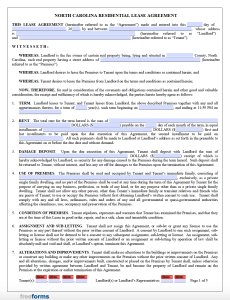
Standard Lease Agreement – Forms a detailed statement to capture the terms and agreements inherent in the renting of a space for a designated time and dollar amount.
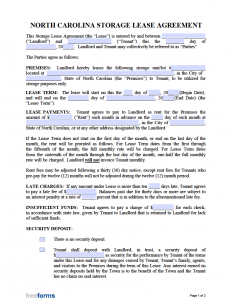
Storage Lease Agreement – Specific to exchanges involving the rental of storage space for a monetary sum.
Sublease Agreement – Denotes the details involving a present tenant offering a lease arrangement of the domicile to another individual.
Assistance Animal Addendum (Form 443-T) – For tenants who own a pet that is classified as an “assistance animal”, the lessor may furnish a copy of this form to acquire more details about the creature and to provide certain clauses that protect themselves and their property.
Maintenance Addendum (Form 440-T) – Is added to the content of a lease agreement for the purpose of further elaborating on what responsibilities, relating to maintenance, the tenant is liable for.
Pet Addendum (Form 442-T) – When a pet owner is requesting to rent a residence, the landlord may offer a copy of this document that includes an area to describe the animal, a section to state the fee required for the animal to live on the premises, and some general protective clauses regarding pets.
Working with Real Estate Agents Disclosure (Form 521) – Real estate agents representing either the landlord, tenant, or both should supply a copy of this form to their client(s) to confirm that they disclosed the duties they are obligated to uphold.
The state’s general assembly has an online catalog describing, at length, the many legalities constituting North Carolina General Statutes §42 – Landlord and Tenant regulation.
Location of Security Deposit (§ 42-50) -The state of North Carolina mandates that any landlord requesting a security deposit for a lease agreement must furnish information as to where the money is to be held. The financial institution in which the owner elects to deposit must be federally insured. The state allows thirty (30) days from contract commencement to provide the exact name and address of the bank or insurance bond company.
Lead-Based Paint (42 U.S. Code § 4852d ) – Houses and apartments that were constructed before 1979 are held to an additional standard of notification of the possible threat that lead-composed paints suggest. The landlord must distribute materials to educate the tenant on the precautions that should be taken and issues that could arise when coming into contact with the hazardous matter.
Tenants are expected to compensate the lessee with the agreed-upon amount on the exact date characterized in the lease agreement. Rent received later than five (5) days past the due-date will surpass the allotted grace period and could be subject to incur late fees (§ 42-46).
Should a landlord elect to charge an amount triggered by late rental payment, it is to be outlined in the leasing agreement in order to be compelled by the law. Limitation on the amount that can be enforced by an owner is the higher amount of either $15 or 5% on rental payments due each month or $4 or 5% on rental payments due each week (§ 42-46).
If a financial institution should return a check accepted by the landlord, a charge can be incurred by the tenant. State law allows for a maximum of $25 per returned check, but the amount could be less dependent on the amount stated in the contract (§ 25-3-506).
The limit prescribed by the state government on the sum an owner can prescribe to secure the property for occupancy differs for each agreement category (§ 42-51):
At the end of the leasing period, the security deposit is to be delivered to the tenant at a provided forwarding address within thirty (30) days. For cases where damages to the property, unpaid rent/utilities, or breach of the agreement are sustained, the landlord will be allowed sixty (60) days for the return of the deposit and an itemized account (§ 42-52).
There is no definitive legislature determining the amount of advanced notification a landlord or manager is required to give before entering the premises.